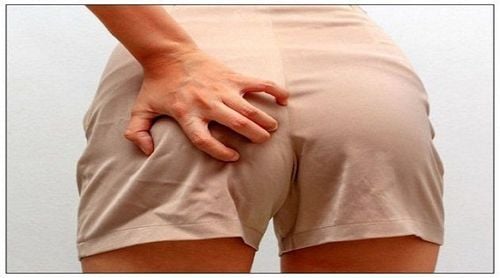This is an automatically translated article.
The article was professionally consulted by Specialist Doctor II Pham Thi Tuyet Mai - Obstetrician and Gynecologist - Department of Obstetrics and Gynecology, Vinmec Hai Phong International General HospitalUterine prolapse is a condition in which the uterus drops below its normal position. Uterine prolapse occurs when the pelvic floor muscles weaken, causing many organs including the bladder, rectum, and urethra to drop into the vagina. However, the most commonly prolapsed organ is the uterus.
1. What is uterine prolapse?
The organs in a woman's pelvis include: the bladder (bladder) in front, the vagina, the uterus in the middle, and the anus and rectum behind. To support all these organs requires an interwoven system of scales, muscles, ligaments and nerves. When this support system is damaged, often due to pregnancy, childbirth, or hormonal deficiencies in the elderly, these organs prolapse and fall out of the vulva. In particular, uterine prolapse is one of the pelvic floor diseases, in addition, there are bladder prolapse, rectal prolapse accompanied, causing inflammation, urinary incontinence, difficulty urinating, constipation...
Floor pathologies Pelvic inflammatory disease including uterine prolapse is not an inherited disease. There are many ways to prevent the disease such as building a diet to avoid constipation, shaping postures when working and living to avoid increasing abdominal pressure, performing exercises to help strengthen health. muscles in the pelvic floor...
2. Subjects prone to uterine prolapse
Uterine prolapse is a disease that can be encountered in any woman. However, there are still some subjects with a higher rate of uterine prolapse than the rest:
Postpartum women, especially for women who give birth vaginally (natural birth), especially having a very long labor time. Women who are pregnant for the first time are less likely to have uterine prolapse than women who have had multiple pregnancies; Women who exercise right after giving birth without abstinence, labor, or carry heavy loads lead to the bottom of the abdomen to contract too much, the abdomen to stretch, sometimes damage or tear some parts of the body, lead to uterine prolapse. Therefore, it is not natural that folk believe that women must abstain from many things after giving birth to avoid future diseases; Women in perimenopause, older women;

Please dial HOTLINE for more information or register for an appointment HERE. Download MyVinmec app to make appointments faster and to manage your bookings easily.














